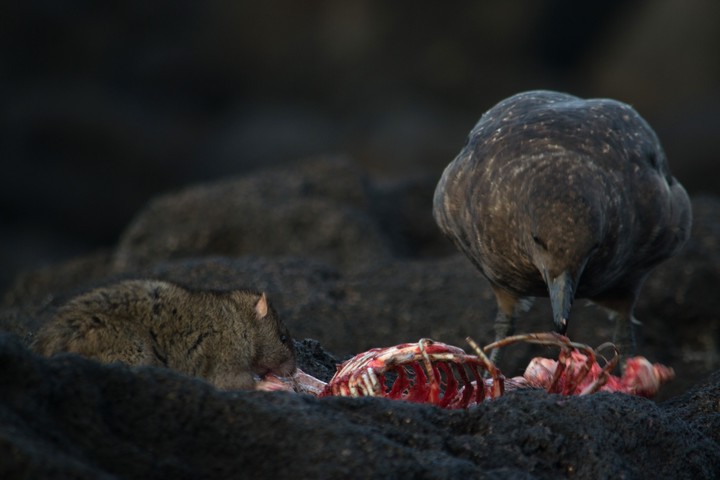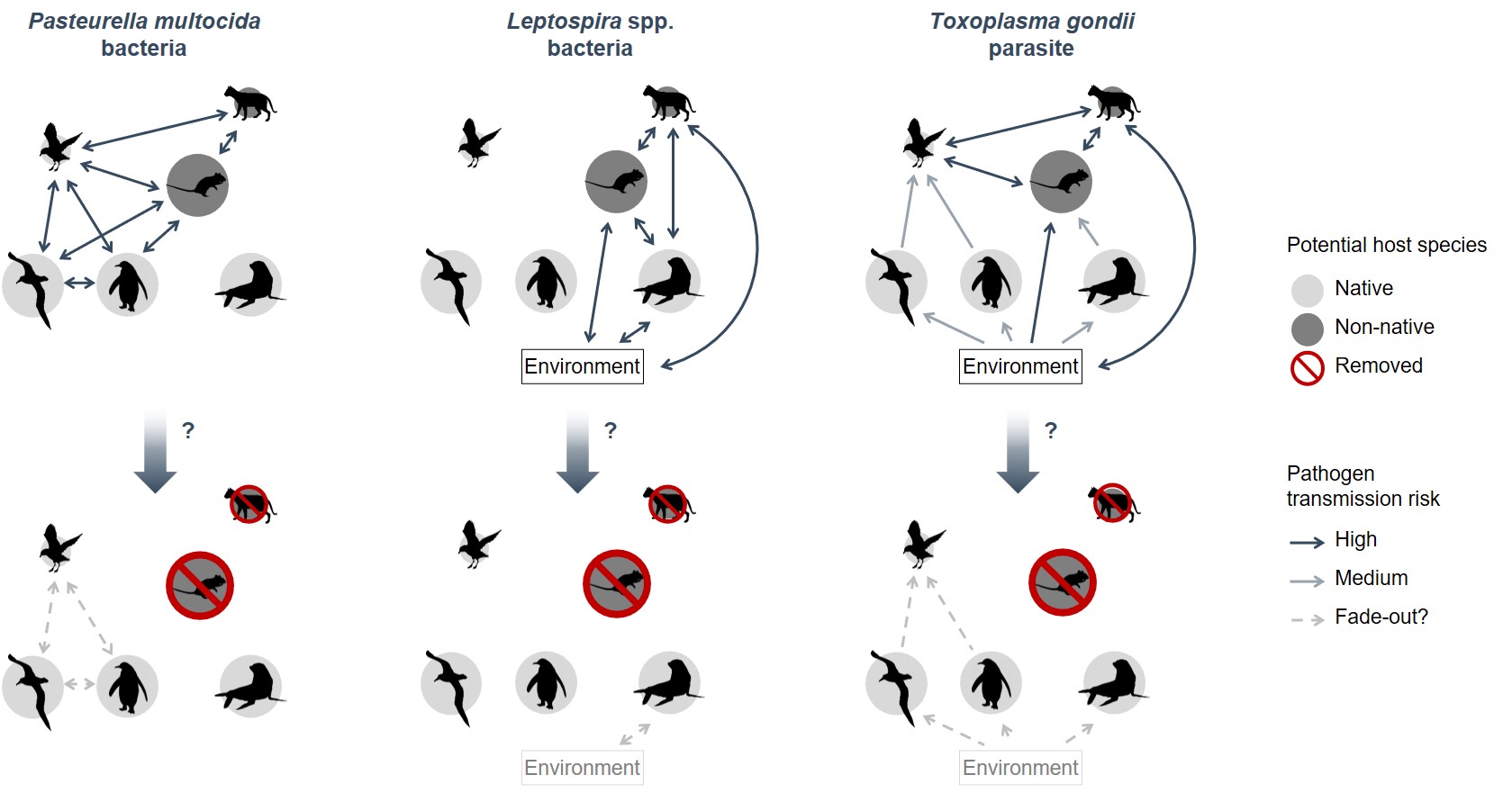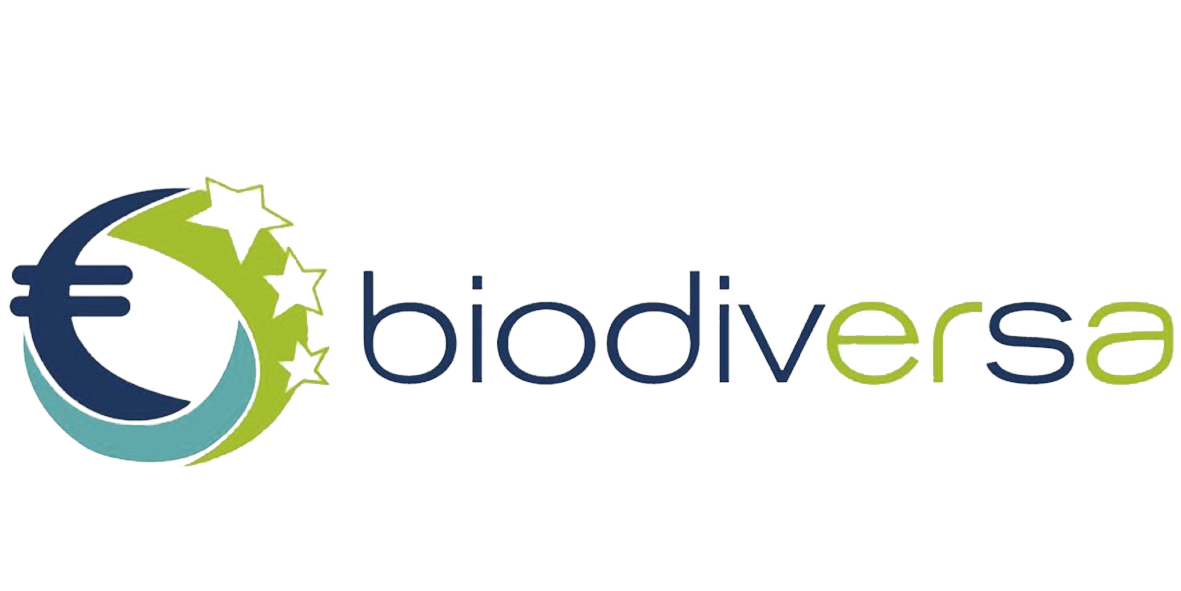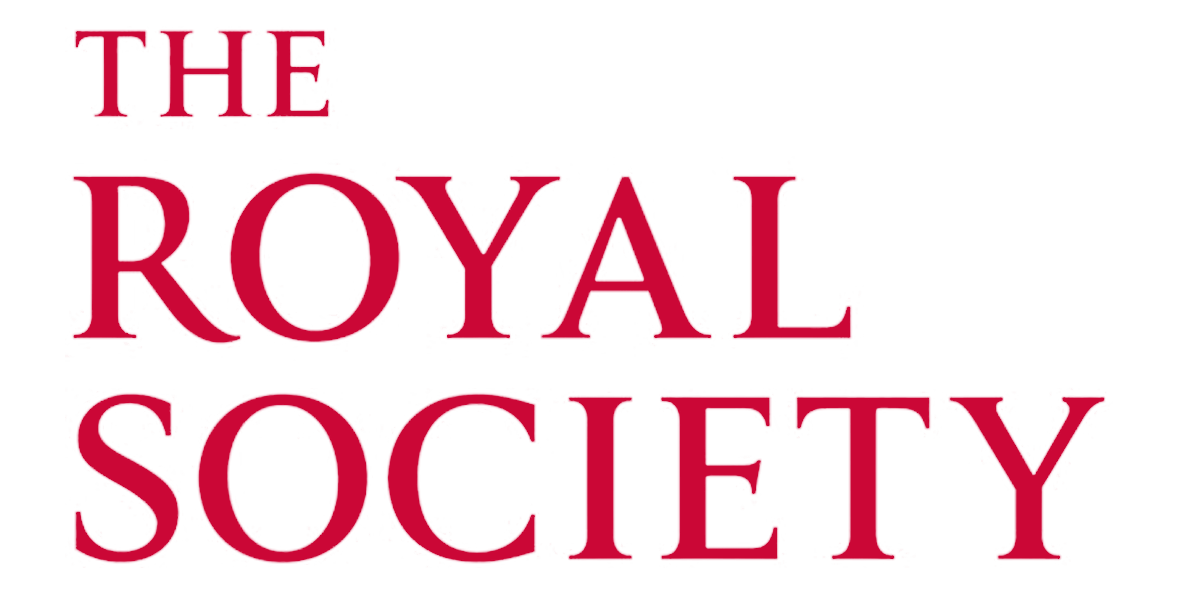INVADED: contribution of non-native species to epidemiological dynamics
 A native brown skua and a non-native brown rat sharing a seal carrion on Amsterdam Island © Augustin Clessin, IPEV
A native brown skua and a non-native brown rat sharing a seal carrion on Amsterdam Island © Augustin Clessin, IPEV
Many infectious diseases of humans and animals are caused by pathogens that can infect multiple species (multi-host pathogens). Through their impact on ecosystems, human activities can modify the dynamics of these pathogens, increasing the risks of disease emergence and spread in human and animal populations. Elucidating the processes driving pathogen dynamics across species is key to mitigating these risks.
To advance our understanding of multi-hosts pathogen dynamics, we use field experiments through which track ecological and epidemiological dynamics in parallel with the manipulation of host community composition. To conduct these experiments, we capitalize on island restoration programs led by our conservation partners, consisting in non-native species removal, and providing a unique opportunity to track changes in pathogen dynamics after a large-scale ecological perturbation. We use these experimental data to parameterize mathematical models and quantify the contribution of each species to pathogen dynamics within these systems.
Preliminary data suggest that non-native rodents play a critical role in the maintenance of some pathogens of native species on subantarctic islands, such as Pasteurella multocida, the agent of avian cholera. This work will allow us to assess whether non-native species control could represent an effective and sustainable solution to such pathogens.
More broadly, we expect this work to have important implications for our understanding of pathogen emergence, maintenance and spread, and the role we, humans, play in these processing by facilitating species' introductions and extinctions. This knowledge will provide a solid basis to guide decision-making on disease control and non-native species management, paving the way towards sustainable solutions for the protection of biodiversity and public health.
This work builds upon the experience of our team in disease ecology in colonial species, and a wide network of collaborators including rodent ecologists and conservation partners.

Main Collaborators
- Thierry Boulinier, National Center for Scientific Research, France
- Célia Lesage, National Nature Reserve of the French Southern Lands, France
- Paulo Catry, Marine and Environmental Sciences Centre, Portugal
- Antje Steinfurth, Royal Society for the Protection of Birds, UK
Field Sites
Main Funders


